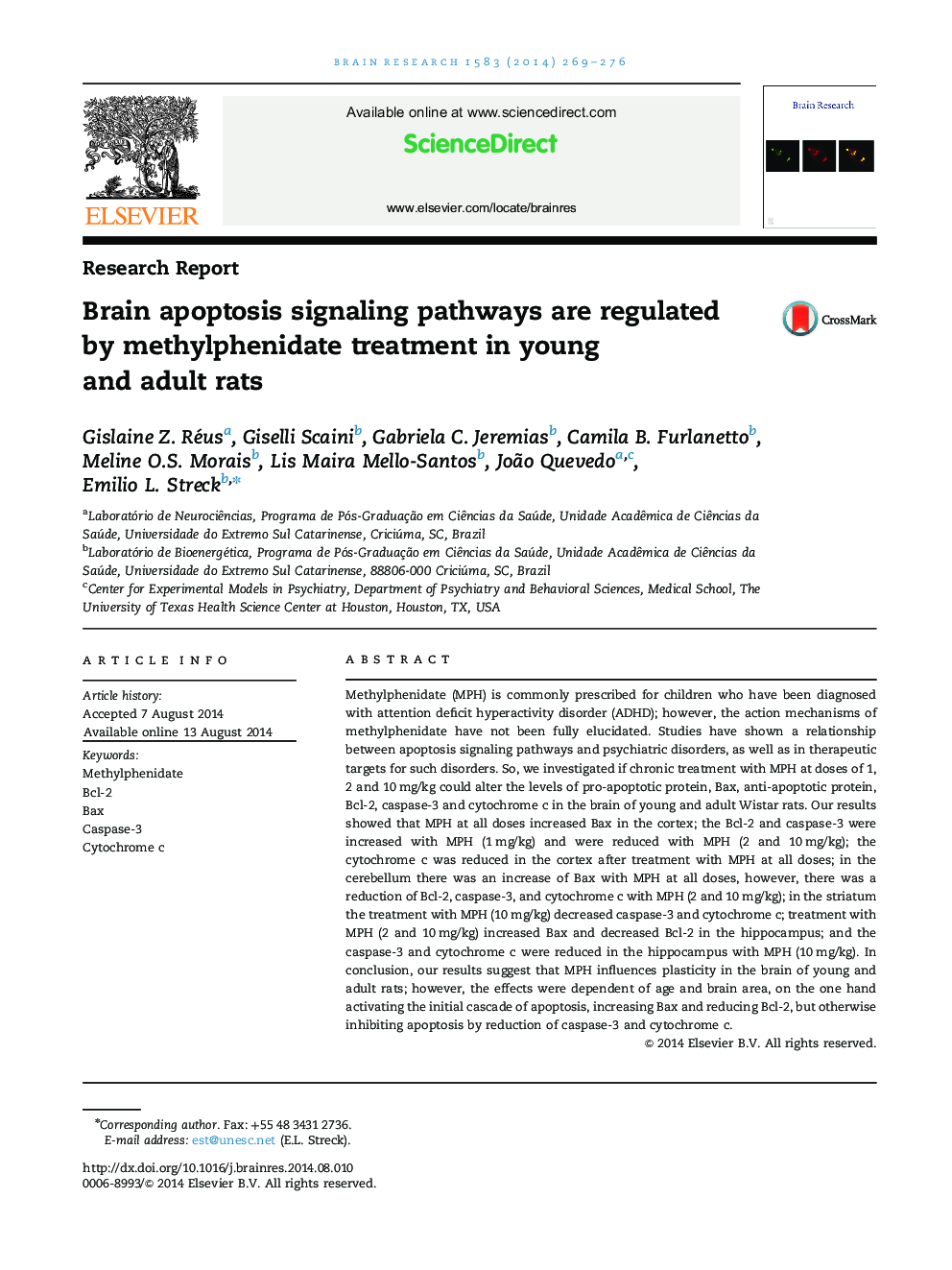| Article ID | Journal | Published Year | Pages | File Type |
|---|---|---|---|---|
| 4324162 | Brain Research | 2014 | 8 Pages |
•MPH presented neurotoxic effects by increasing Bax and decreasing Bcl-2.•MPH showed a neuroprotective effect by reducing cytochrome c and caspase-3.•MPH influences plasticity in the brain of young and adult rats.
Methylphenidate (MPH) is commonly prescribed for children who have been diagnosed with attention deficit hyperactivity disorder (ADHD); however, the action mechanisms of methylphenidate have not been fully elucidated. Studies have shown a relationship between apoptosis signaling pathways and psychiatric disorders, as well as in therapeutic targets for such disorders. So, we investigated if chronic treatment with MPH at doses of 1, 2 and 10 mg/kg could alter the levels of pro-apoptotic protein, Bax, anti-apoptotic protein, Bcl-2, caspase-3 and cytochrome c in the brain of young and adult Wistar rats. Our results showed that MPH at all doses increased Bax in the cortex; the Bcl-2 and caspase-3 were increased with MPH (1 mg/kg) and were reduced with MPH (2 and 10 mg/kg); the cytochrome c was reduced in the cortex after treatment with MPH at all doses; in the cerebellum there was an increase of Bax with MPH at all doses, however, there was a reduction of Bcl-2, caspase-3, and cytochrome c with MPH (2 and 10 mg/kg); in the striatum the treatment with MPH (10 mg/kg) decreased caspase-3 and cytochrome c; treatment with MPH (2 and 10 mg/kg) increased Bax and decreased Bcl-2 in the hippocampus; and the caspase-3 and cytochrome c were reduced in the hippocampus with MPH (10 mg/kg). In conclusion, our results suggest that MPH influences plasticity in the brain of young and adult rats; however, the effects were dependent of age and brain area, on the one hand activating the initial cascade of apoptosis, increasing Bax and reducing Bcl-2, but otherwise inhibiting apoptosis by reduction of caspase-3 and cytochrome c.
